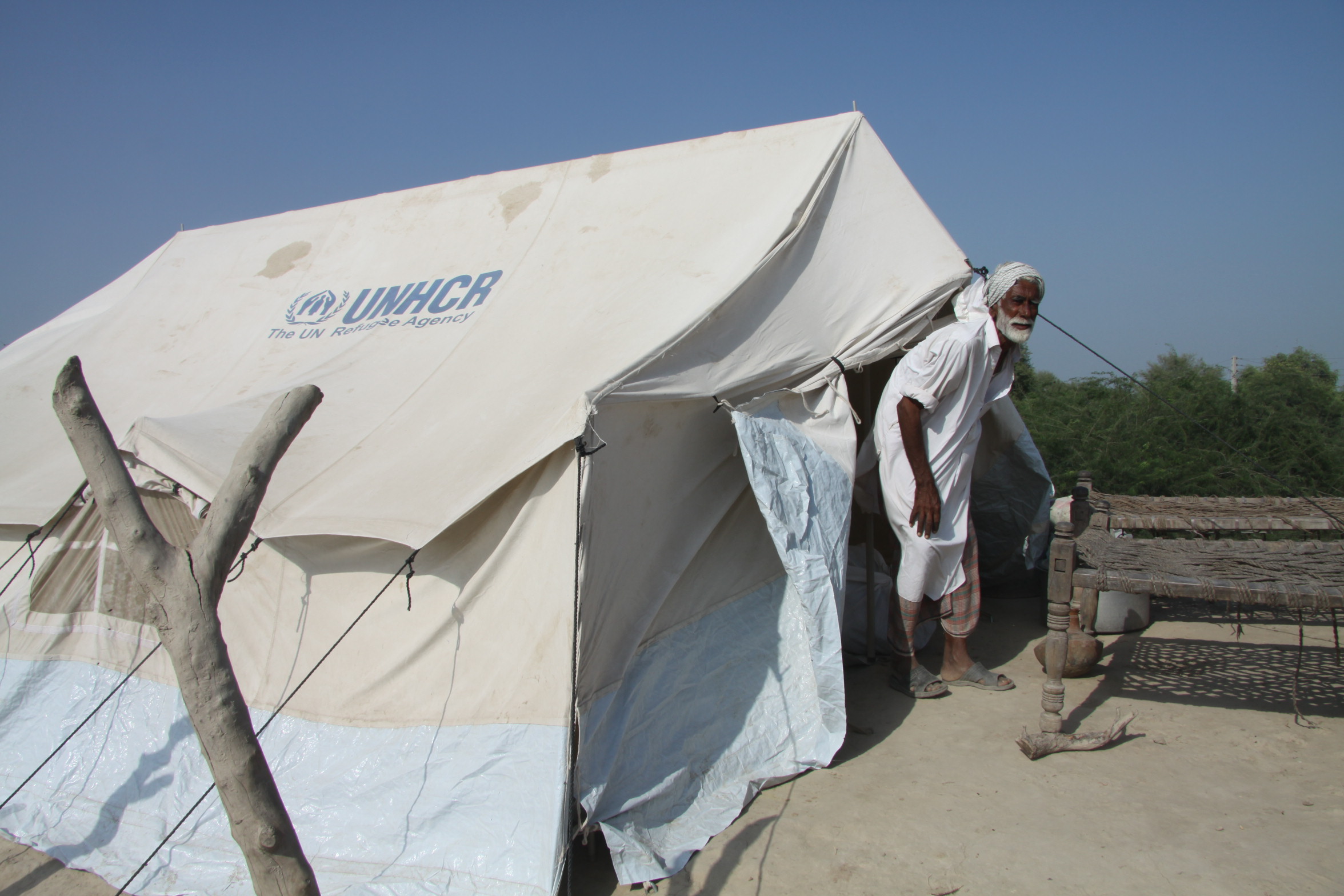UNHCR says vast scale of emergency in Pakistan still not being grasped
UNHCR says vast scale of emergency in Pakistan still not being grasped
Pakistan's emergency continues to worsen as bloated rivers head southwards, flooding new areas and triggering massive further displacement. Urgent needs continue to overwhelm the capacity of agencies and authorities to respond. Overall, we see a risk that the full scale of the emergency is still not being grasped by the world community.
In Balochistan, where UNHCR is coordinating aid efforts, the number of flood victims has doubled over the past weekend with people fleeing Jacobadad in Sindh to Sibi, Nasirabad and Quetta districts. Balochistan, which is one of Pakistan's remotest and poorest provinces, was the first to be hit by flooding on 22 July, and is now struggling to cope with more than half a million displaced.
Today, UNHCR is airlifting a further 32 tonnes of plastic tarpaulins, soap and mosquito nets to Quetta aboard two Pakistan government C-130 Hercules planes. Yesterday 64 tonnes of tents, plastic sheets and other aid was flown in on four flights from our warehouse in Peshawar. The supplies are aimed at helping to meet the needs of the soaring number of flood victims in the province currently camping on roadsides or seeking shelter in schools, stadiums and other public facilities.
UNHCR continues to face a logistical challenge in getting aid in fast enough to meet this still unfolding crisis. In Balochistan, for example, people still need everything - shelter, food, clean drinking water and health and hygiene systems. Our supplies are dwindling. We need more airlifts and massive amounts of funding to meet the still unfolding crisis.
Elsewhere, flood waters have receded in parts of the north-west province of Khyber Pakhtunkwa, revealing the magnitude of devastation, but also giving UNHCR better access to communities to provide relief and assess their immediate and longer term needs. UNHCR now has three shelter relief distribution hubs operating in the districts of Charsadda, Peshawar, and Nowshera and has increased its assessment and monitoring teams in affected Pakistani villages and Afghan refugee settlements to ensure aid is reaching people most affected. We are putting in place additional protection staff to identify those who are most vulnerable - for example, women-headed households, the elderly or others with specific needs.
Meanwhile, since the start of Ramadan over the past week, UNHCR in Khyber Pakhtunkwa province has observed more people returning to their damaged homes, clearing debris and sorting through the mud to try to salvage furniture and other belongings.
UNHCR technical staff are also in the field assessing damage to houses and the best way to provide transitional shelter to help those who can return. Latest estimates put the number of destroyed or badly damaged homes at some 893,000, meaning shelter is likely to remain one of the key priorities in this emergency for months to come.



























